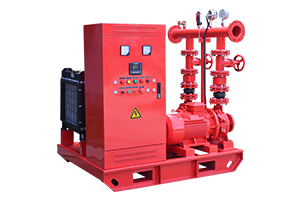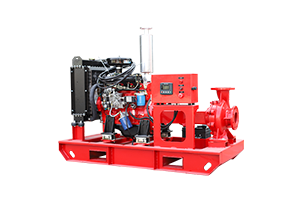What Are the Main Causes of Fire Pump Damage?
Fire pump damage can result from a variety of factors, often stemming from improper use, maintenance issues, or external conditions. Here are some of the main causes:

-
Cavitation: When the fire pump operates at low suction pressure or flow, cavitation can occur. This results in vapor bubbles forming in the water, which collapse violently, causing pitting and damage to the pump impeller and casing. Cavitation is often due to poor water supply or excessive pump speed.
-
Overheating: If a fire pump runs without water or with insufficient cooling, it can overheat, damaging the seals, bearings, and other components. Overheating is especially common when the pump runs dry due to low water supply.
-
Corrosion and Rust: Fire pumps that are not properly maintained or are exposed to harsh environments may experience rust and corrosion. This is particularly problematic in saltwater environments or areas with high humidity and can degrade the pump’s internal components over time.
-
Improper Lubrication: Insufficient or incorrect lubrication of bearings can lead to premature wear and failure of moving parts. Regular lubrication according to the manufacturer's guidelines is essential for smooth operation.
-
Vibration and Misalignment: Excessive vibration or shaft misalignment can cause significant damage to fire pumps. Misalignment might result from improper installation or natural settling over time, while vibration can be a sign of other issues like bearing wear or imbalanced impellers.
-
Foreign Objects in the Pump: Small debris, sediment, or other foreign materials in the water supply can enter the pump and cause mechanical damage to the impeller and casing. Installing strainers and regular cleaning can help prevent this.
-
Electrical Issues: For electric fire pumps, electrical faults such as short circuits, motor overheating, and voltage fluctuations can lead to damage or failure. Regular checks of the motor and control panels can help catch and address these issues early.
-
Poor Maintenance: Fire pumps require regular maintenance to function properly. A lack of routine inspections, performance tests, and general upkeep can lead to minor issues escalating into significant damage over time.
To prevent these issues, regular inspections, adherence to maintenance schedules, and prompt repairs are crucial, along with ensuring proper installation and training for those who operate the fire pump system.






